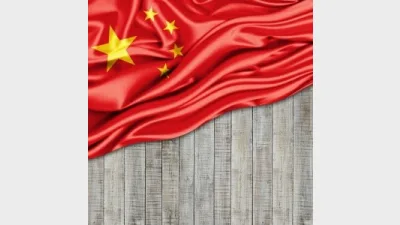International investors aim to crack China’s market



The recentl regulatory approval for BlackRock’s onshore Chinese investment management firm has represented a milestone in a growing competition between international asset managers who are getting closer to cracking the Chinese market as it followed JPMorgan’s earlier acquisition of China International Fund Management (CIFM), according to Fitch Ratings.
Following this, other international managers – such as Fidelity and Neuberger Berman - were still in the licence approval process, while there were reports that Vanguard was planning to move its staff to Shanghai from Hong Kong suggesting the importance that international managers were placing on China, according to a rating agency.
Fitch said that international investment managers had been active in China for some time, although their access to the Chinese market was limited to joint ventures or private fund management licences but BlackRock's regulatory approval from the China Securities Regulatory Commission (CSRC) for its wholly-ownedmutual fund business in China and J.P. Morgan's reported completion of its acquisition of CIFM would enable both managers to enter the Chinese investment management market in full.
However, succeeding in China would be challenging for international investment managers in light of the differences in practices - notably in terms of distribution - between China and other markets, with fund distribution in China typically involving distribution platforms and/or other intermediaries, which could create a conflict with international managers more accustomed to direct distribution to end-investors.
Additionally, a major driver of the growth of money market funds in China and the largest fund type by a significant margin, was electronic distribution via mobile applications such as WeChat.
“International managers will also face stiff competition from domestic investment managers, which often benefit from greater brand recognition, and broader institutional understanding of markets and cultural dynamics. They are also likely to be more attuned to political and regulatory insights,” the agency said.
“Conversely, international investment managers may be able to offer a wider array of investment products than purely domestic managers due to their global presence, thus attracting investors.
“Those international managers with stronger risk-management processes or deeper investment expertise may also be at an advantage compared with purely domestic managers. Investment expertise will be particularly important - those managers who consistently outperform, be they international or domestic - will be more likely to attract and retain assets.”
Fitch said it believed that market liberalisation and structural underlying factors would drive the growth of China's mutual fund sector.
China's open-end mutual fund assets were CNY15 trillion as of end-June 2020, ranking it the fifth-largest mutual fund domicile worldwide, with a growth in China - 70% over the three years to end-1Q20 - outstripping global mutual fund growth of 12% over the same period.
Recommended for you
Ausbil is growing its active ETF range with an ESG product in collaboration with sister company Candriam.
Philanthropic investment group Future Generation’s CEO, Caroline Gurney, will step down from her role at the start of next year.
The newly combined L1 Group is expectant of stabilising Platinum’s falling funds under management within the next 18 months, unveiling four growth pathways and a $330 million equity raise.
Janus Henderson Investors has launched a global small-cap fund for Australian investors, which includes a 5.4 per cent weighting to Australian equities.












